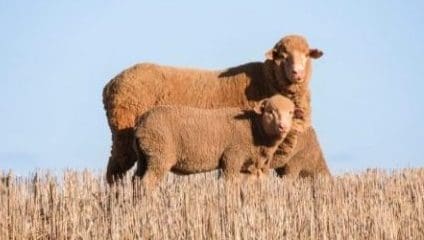
DPIRD WA says there are many advantages to lambs and ewes from weaning at 14 weeks after lambing starts.
A WESTERN Australian sheep producer has paid a heavy penalty for non-compliance with the state’s biosecurity laws after using incorrect ear tags and not uploading livestock movements.
The 33 year-old livestock producer from the state’s south-west has been fined $4000 and ordered to pay court costs of $990.30 after pleading guilty in Bunbury Magistrates Court to 13 charges relating to non-compliance with Western Australia’s biosecurity laws.
A Department of Primary Industries and Regional Development statement said the magistrate recognised the biosecurity risk and the requirement for farmers to know the law and abide by it. T
The case stood as a general and specific deterrence for producers and the offender, DPIRD said.
The producer was charged following an investigation undertaken by DPIRD biosecurity compliance officers.
The DPIRD investigation revealed that between 2020 and 2021, incorrect National Livestock Identification System ear tags had been applied to sheep, incorrect information was recorded on NLIS movement records (known as waybills) and livestock movements were not uploaded on the NLIS system within the 48-hour time frame.
Under Western Australia’s biosecurity legislation, it is a requirement that all livestock must be identified with an approved NLIS tag or electronic device.
All livestock owners must also be registered with DPIRD and have a property identification code which is used to trace the movement of animals on and off a property.
DPIRD biosecurity compliance coordinator Paul Cassidy said the prosecution was a reminder to all livestock producers that failing to correctly identify your animals or accurately record their movements in a timely manner could result in fines or prosecution.
“All livestock producers have a responsibility to play their part in ensuring a robust traceability system to protect the State’s valuable livestock industries including our important export markets,” he said.
“Traceability is essential to managing and containing emergency diseases, as well as to regaining market access as early as possible should an incident occur.”
Mr Cassidy said identifying animals correctly could also help to deter theft and assists in recovering stolen animals.
“Our officers will continue to monitor livestock on farms, at saleyards and abattoirs to ensure animals are being correctly identified and NLIS obligations are being followed.
“If you see or know of someone failing to meet their obligations, we encourage you to report it to AgWatch on the Crime Stoppers website, which is an anonymous service.”
For help registering your livestock, contact the NLIS Helpdesk on 1300 926 547.
Additional information on livestock identification can be also be found on the Livestock movement identification and ownership page on the DPIRD website.
Additional information on livestock identification can be also be found on the Livestock
movement identification and ownership page on the DPIRD website

HAVE YOUR SAY